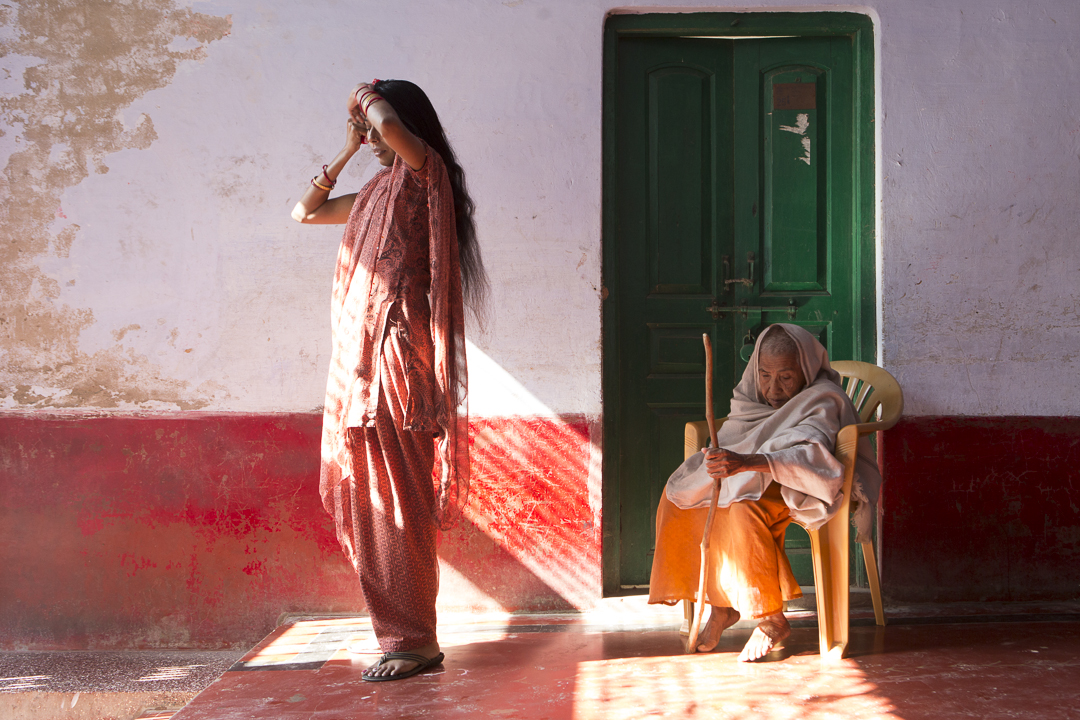In many regions of the world widowhood marks a "social death" for a woman—casting her and her children out to the margins of society. In India, stigmas around widows are deeply rooted in Hinduism—including an old belief that a widow should be denied the three prime goals of Hindu life: artha (wealth), kama (pleasure), and dharma (family religious ritual). Another view ostensibly blames a woman when her husband dies by believing if a woman is pure and faithful enough she can actually keep her husband from death itself. In the most extreme, a widow would throw herself on her husband's funeral pyre. This practice known as Sati, was outlawed in the early 1800s, but the expectation for widows to live the remainder of their lives in mourning has continued.
Thousands of India's 40 million widows seek refuge in India's holy cities like Vrindavan and Varanasi where they carry out a life sentence to repent for a death they are presumed culpable for—shaving their heads, wearing white, eating bland foods and never remarrying. However, younger widows are rejecting these expectations and within these cities one can see a shift taking place.
Tarash Mandir is a home for widows and teenage girls located in the holy city of Vrindavan. The home provides food and shelter as well as education and work skills training. The girls are here for a variety of reasons—all stemming from the cultural belief that females are less desirable. Some have been abandoned by their families—left in Vrindavan simply because they are "girls." There is one young woman who divorced her husband and now without the status of being attached to a man is at high risk for rape and other abuses. Manju Singh Tomar, a 26-year-old widow lives here with her 2-year-old son. Manju's family disowned her because she had a "love marriage," and then her husband died. She roamed the streets begging until someone told her that many widows find shelter in Vrindavan. When she arrived with her son by bus, the niece of a fruit-seller brought her to Tarash Mandir. The staff at the home is helping her regain a relationship with her family, but it has been challenging. She does not want to get remarried, as her parents intend, but would prefer to get trained to work and remain single and raise her son.

































